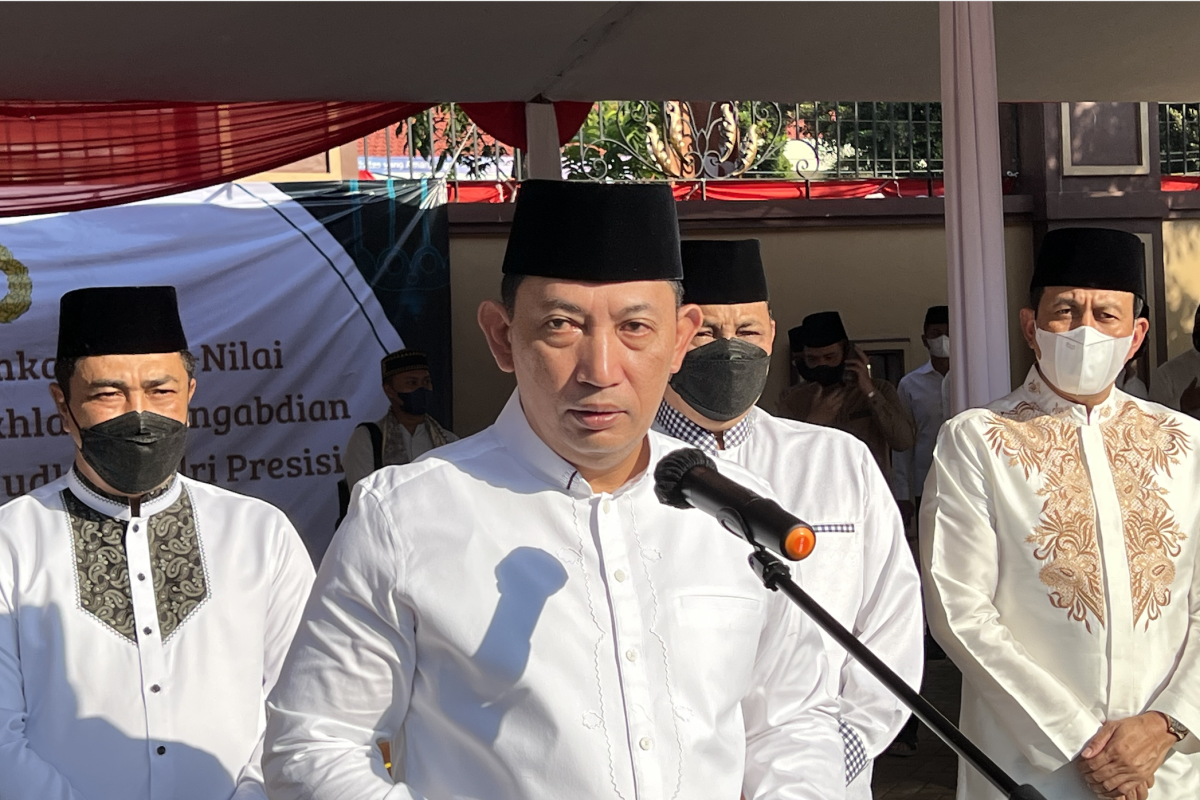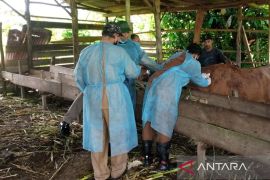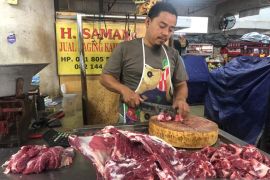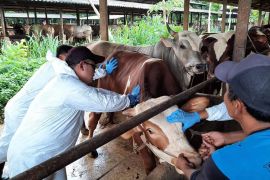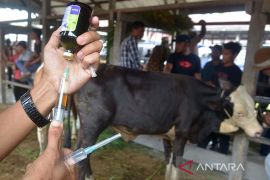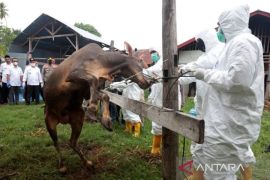"This year's Eid al-Adha is quite different. Besides facing the new COVID-19 subvariants, BA.4 and BA.5, we must also follow related regulations in organizing or slaughtering these sacrificial animals to prevent the spread of FMD outbreaks," Prabowo noted in his remarks at the Bhayangkara Field of the Police Headquarters, Jakarta, Sunday.
He explained that the FMD outbreak forced the process of slaughtering animals to follow the standard operating procedures (SOPs) to prevent the spread of the disease outbreak.
"It must be carried out in accordance with the SOP related to the slaughter of sacrificial animals. This is the most important thing,” he reminded.
Based on previous reports, the Spokesperson for the Task Force for FMD Handling, Professor Wiku Adisasmito, said that animals detected by FMD in the green zone must be destroyed and then buried.
Then, in the yellow zone, livestock transmitted with FMD must be conditionally slaughtered at the Slaughterhouse (RPH). Especially the head, offal, skin, and feet must be buried, he said.
Meanwhile, FMD-positive animals in the red zone must be isolated by considering the condition of the animals or conditional slaughter at the RPH. The head, offal, skin, and feet must also be buried.
On the other hand, the Chairman of the Indonesian Veterinary Association (PDHI) in Central Kalimantan Province, Eko Hari Yuwono, said that the meat of animals infected with FMD was still safe for consumption if processed properly.
"This FMD, apart from cows, can also be transmitted to other animals such as goats, pigs, and other split-hoofed animals. However, this virus does not infect humans or is a zoonosis," he informed.
Related news: FMD vaccination coverage tops 80% in East Java
Related news: Ministry invites sub-district heads to partake in FMD handling
Translator: Putu Indah S, Resinta S
Editor: Suharto
Copyright © ANTARA 2022
